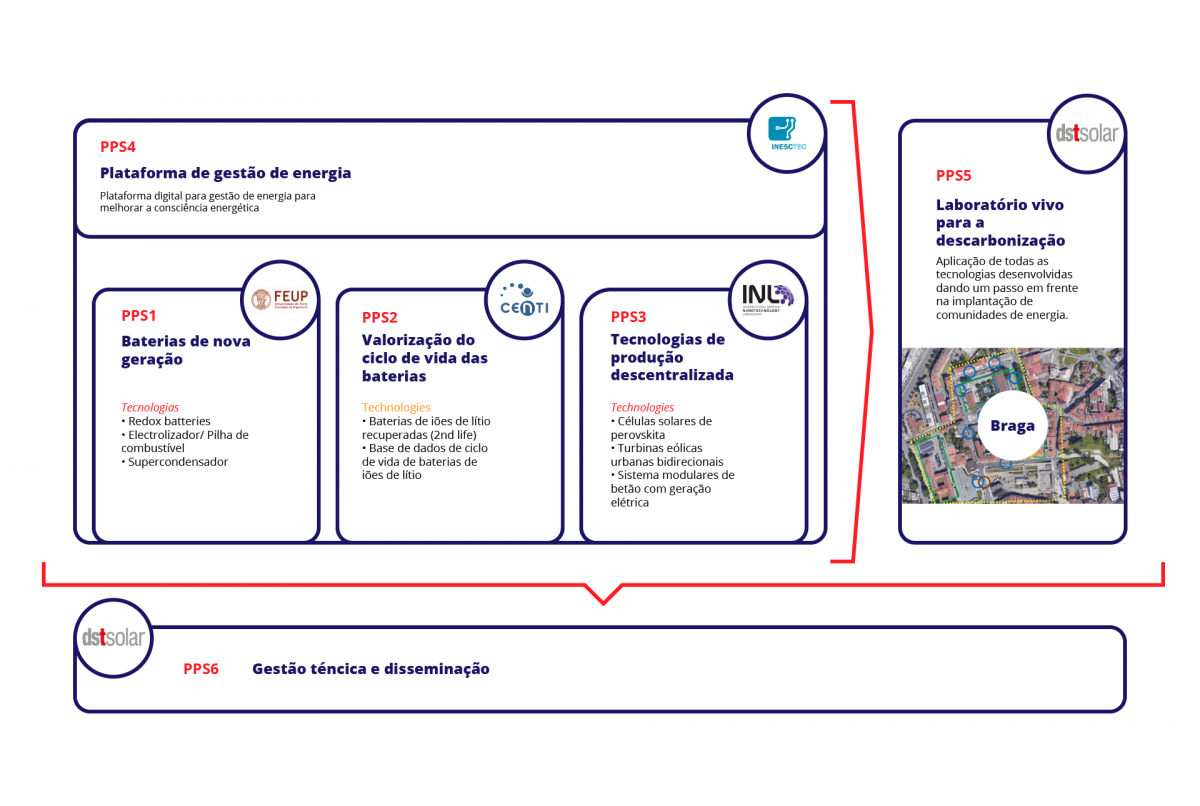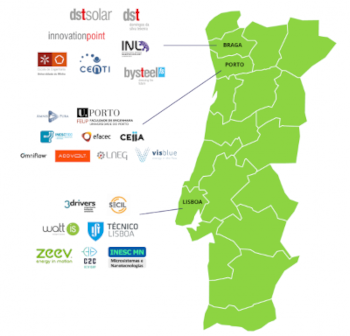Batteries as the central element for urban sustainability

Batteries as the central element for urban sustainability

Batteries as the central element for urban sustainability

The project Batteries 2030 intends to answer in an integrated and structured way to the decarbonization challenges and sustainable energy community’s dissemination. The project leverages science and technology around the theme of production, storage and management of sustainable energy.
The project Batteries 2030 focuses on the development of technologies applied to batteries of the future and their transfer to the urban environment. The project strategic goal is based on disruptive solutions, reliable, sustainable, easily scalable, capable of being integrated throughout the value chain and accessible to the consumer.
The alignment with European strategies in terms of decarbonization and sustainable cities, and the coordination with technological agendas focused on the development of high-performance, reliable, safe and environmentally and economically sustainable batteries, ensure the strategic positioning of the Batteries 2030 in the national panorama.
The current development model based on the intensive consumption of fossil energy, combined with the territorial dynamics that tend to concentrate the population in the urban areas, poses strong energy challenges to the development of cities of the future.
By 2050, it is expected that 68 % of the world population will live in cities - compared to the current 55 %, making the decarbonization of cities emerge as instrumental in combating climate change.
The decarbonization process is based on the phased withdrawal of fossil fuels and progressive integration of endogenous renewable sources. This transition in the electro-producing sector is only possible through the diversification and technological complementarity associated with the production of renewables, namely by affirming centralized and decentralized solar production in the efficiency gains of offshore wind production.
The energetic model of the future is thus configured in renewable production, which, being intermittent, implies the need for intermediate storage. This storage, for savings in distribution reasons, will have to be done locally in the buildings themselves, and integrated in smart micro-grids.
For all of this to happen, the batteries role is central and poses numerous challenges.
The technologies of decentralized energy production from renewable sources with possible battery storage (e.g., photovoltaic systems, wind turbines, and innovative energy capture systems) or new forms of hydrogen storage – associated to peer-to-peer technologies with integrated systems for dynamic consumption management - will be able to grant citizens decision-making power, making them, at the limit, self-sustainable in isolation or integrated into energy communities - micro-grids.
The project Batteries 2030 comprises six Products, Processes or Services (PPS), four of which are centred on technical-scientific domains: PPS1 - New generation batteries; PPS2 – Batteries life-cycle valorisation; PPS3 – Technologies for decentralized production; PPS4 – Platforms of energy management, and the resulting technologies will be integrated and demonstrated in an urban space; PPS5 – Living lab for the decarbonization, which intends to establish an energy community based on a low carb micro-grid, which promotes the substitution of fossil fuel consumption, and consequent reduction of CO2 production in the urban space.

The consortium of the Baterias2030 project was conceived based on two aspects. The first is based on energy storage and production technologies with a high potential to evolve beyond the current state-of-the-art. The second aspect is the willingness on the part of business and scientific co-drivers to collaborate and contribute in terms of the development of technologies and / or their application in the market. It should also be noted that this project has national reference partners, who, although they are not formally part of the consortium, are relevant partners in the value chain further upstream or represent potential end users of the recommended technologies. The project also counts on the collaboration of the Braga City Council in the implementation of the living laboratory for decarbonization.
